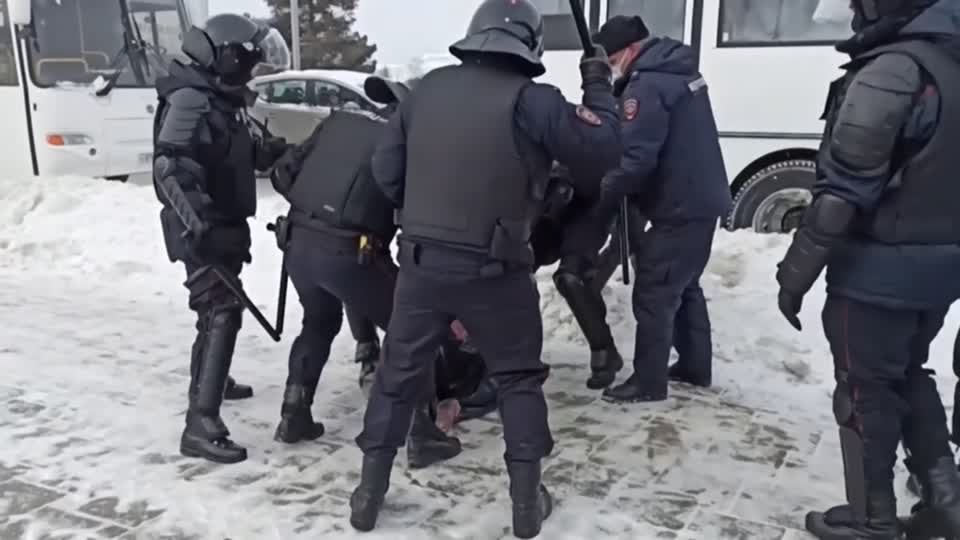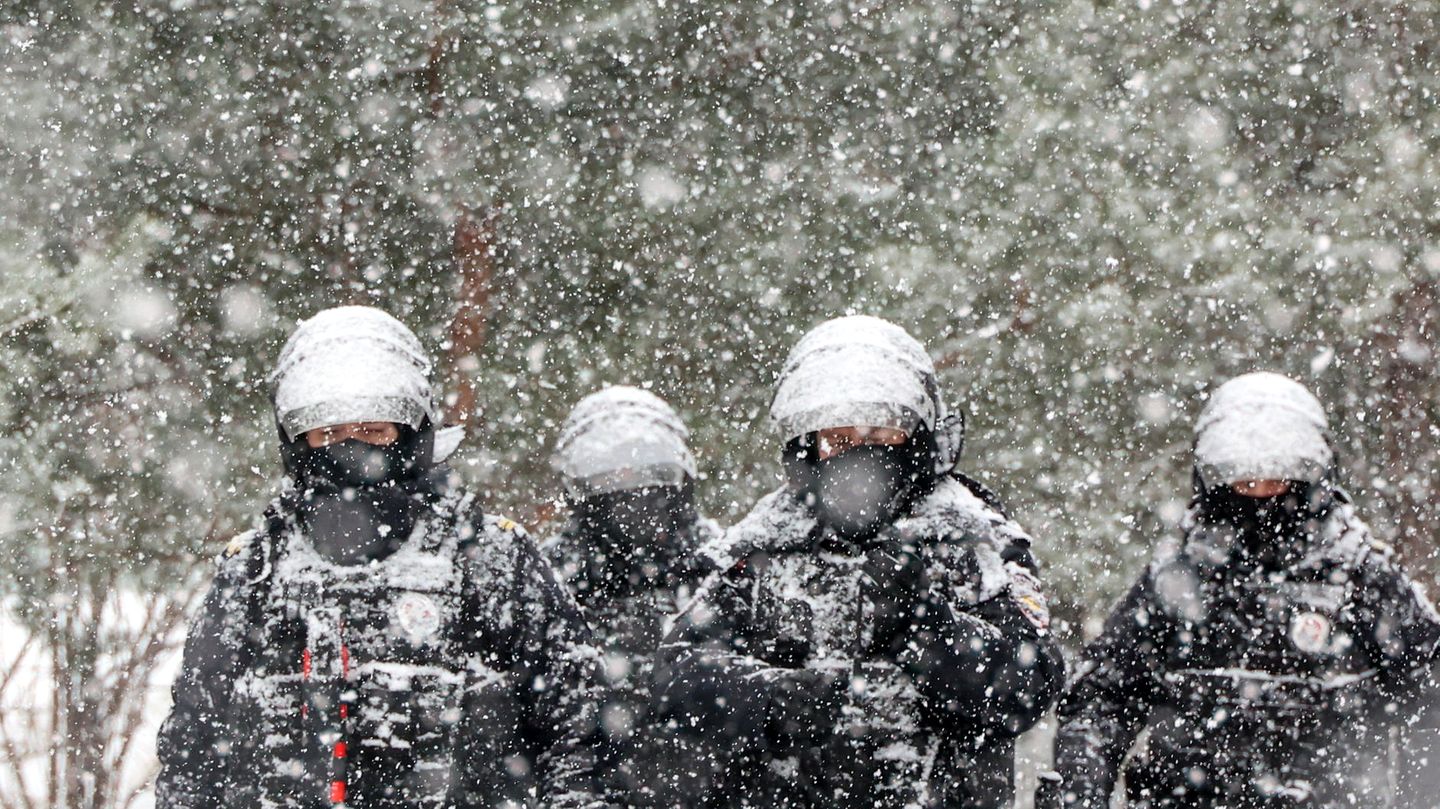Pupils slander teachers, drivers tell on drivers, wives take revenge on husbands: informers are celebrating a comeback in Russia. A practice that once made Stalin’s purges possible.
The Great Terror – these few words are enough to send shivers down the spine of most Russian citizens. Between July 1937 and November 1938, 1.5 million people were arrested at the behest of Joseph Stalin as part of his largest “purge”. Half of the supposed enemies and traitors were executed, the other half ended up in gulags. The bloody wave of purges left a septic wound in Russia’s collective memory. And the leadership in the Kremlin tears them open in cold blood – the spirit of 1937 should hover over everyone.
But the Kremlin is not alone in conjuring up the spirit of the Great Terror. Busy helpers help him and reintroduce a discipline that once made Stalin’s waves of purges possible in the first place: informers. In the 1930s, an accusation without proof was enough – and the uncomfortable neighbor, the unpleasant colleague or the stubborn competitor was picked up in the night by the NKVD secret service and was never seen again.
The methods of the Putin regime do not yet come close to the Stalinist methods. But informers are returning to Russian society. The Stukachi – as informers are known in Russian jargon – target anyone who dares to condemn Putin’s war in Ukraine or who even hints at the Kremlin’s portrayal with doubts.
Teacher is lured by students in case
The case of a teacher from . 57-year-old Marina Dubrova was lured into a trap by her students. It all started when she showed a YouTube video in eighth and eleventh grade classes in which children were singing in Russian and Ukrainian about a “world without war”. The English teacher told the .
“I replied that I consider the acts of war to be a mistake. As it turned out, the conversation was recorded on a telephone. And the recording ended up with the police,” Dubnova said.
The next day, the principal summoned her to his office and told her that “she must not politicize the students.” Just a few days later, police officers came to the school and drew up a report against Dubrowa – for allegedly “discrediting” the Russian military. On the same day, the Korsakov City Court fined the teacher 30,000 rubles. A large sum considering that teachers in the Russian provinces earn between 15,000 and 20,000 rubles a month on average.
Driver blackmails drivers, Metro passenger rats on Metro passenger
In Moscow, a woman reported a subway passenger after she played a video of Ukrainian President Zelenskyy in Ukrainian without headphones while she was driving. The informer immediately called the police and described the alleged culprit: The woman wore khaki trousers, had a pink bag with her and had short hair.
In Krasnodar, police arrested a 32-year-old man for spitting on a placard with the Z symbol. A video shows him stopping at a red light, getting out and spitting in the direction of the poster with the slogan “We won’t let ours down,” and returning to his car. His action was recorded by the video recorder on the windshield of the car behind him and the video was handed over to the police. A district court in Krasnodar found the man guilty of “discrediting the Russian armed forces” and fined him 30,000 rubles.
<x-embed class=”js-embed embed u-typo u-typo–article-text” consent=”pending” privacy-link=”https://www.stern.de/datenschutzbestimmungen-4541848.html” privacy-settings-link=”https://www.stern.de/politik/ausland/javascript:window._sp_.loadPrivacyManagerModal(237312)” srcdoc=’
🤦Жителя Краснодара задержали за плевок в плакат с буквой Z.
32-Lетний Александр просто ехал на машине, заметил баннер со “Zвастикой” и не смог удержаться, чтобы в него ь!нут
To the muzhchinu sostavili the protocol for the shielding of the Russian armor. Теперь ему грозит крупный штраф. pic.twitter.com/e7ADPmubXY— FAKE OFF (@fakeofforg) March 18, 2022
‘ vendor-id=”5e71760b69966540e4554f01″ vendor-name=”Twitter”>
Denunciation as a means of revenge
Another case from Moscow shows that the denunciations – just like in the days of the Great Terror – are based on selfish motives. There, a woman accused her husband of wanting to join the Ukrainian armed forces. The police began investigations. It turned out that the man had cheated on her and she wanted to take revenge on him in this way. A few days later, the woman withdrew her complaint and asserted that her husband was firmly behind Putin.
“Traitors” are being hunted down again in Russia
The means of denunciation is again not only welcomed in Russia, but encouraged. The hunt for alleged “national traitors” begins again. The head of the Russian parliament, Vyacheslav Volodin, recently called for the citizenship of Russian critics of the military operation in Ukraine to be revoked.
Some people feel reminded of dark times. And it is Vladimir Putin himself who is reminding his subjects of the past. “It’s not 1937.” Year after year, the Kremlin gentleman repeats this sentence like a mantra. There will be no systematic purges, he promised. The small black cars of the Soviet secret service NKVD, which were notorious from the Stalinist era and in which thousands of alleged enemies of the people were transported in the direction of the Gulags, would not turn out either.
At one point, Putin even let himself be lured into jokingly explaining why the Great Terror would not return. “I don’t remember the internet being around in 1937,” he explained.

“We have the fear of this year of horror in our blood”
But the laughter gets stuck in many people’s throats. Because the year 1937 has apparently become a benchmark for Putin over the course of his 21-year rule. It was already clear to the historian Ivan Kurilla a year ago that the Russian President was not mentioning this date by chance. “We have the fear of this year of horrors in our blood,” said the professor, who teaches at the independent European University in Saint Petersburg, about himself and his compatriots in an interview with the star. “The year 1937 has burned itself into our collective memory as a symbol of Stalinist terror. And the government is taking advantage of this. The Kremlin is threatening to float in the air: If necessary, the conditions of 1937 could return.”
The fear of ending up in the gulag is inherent in Russian society and makes it difficult for any resistance movement to emerge. “The Kremlin exploits this fear unscrupulously and purposefully for itself.”
Source: Stern
David William is a talented author who has made a name for himself in the world of writing. He is a professional author who writes on a wide range of topics, from general interest to opinion news. David is currently working as a writer at 24 hours worlds where he brings his unique perspective and in-depth research to his articles, making them both informative and engaging.




